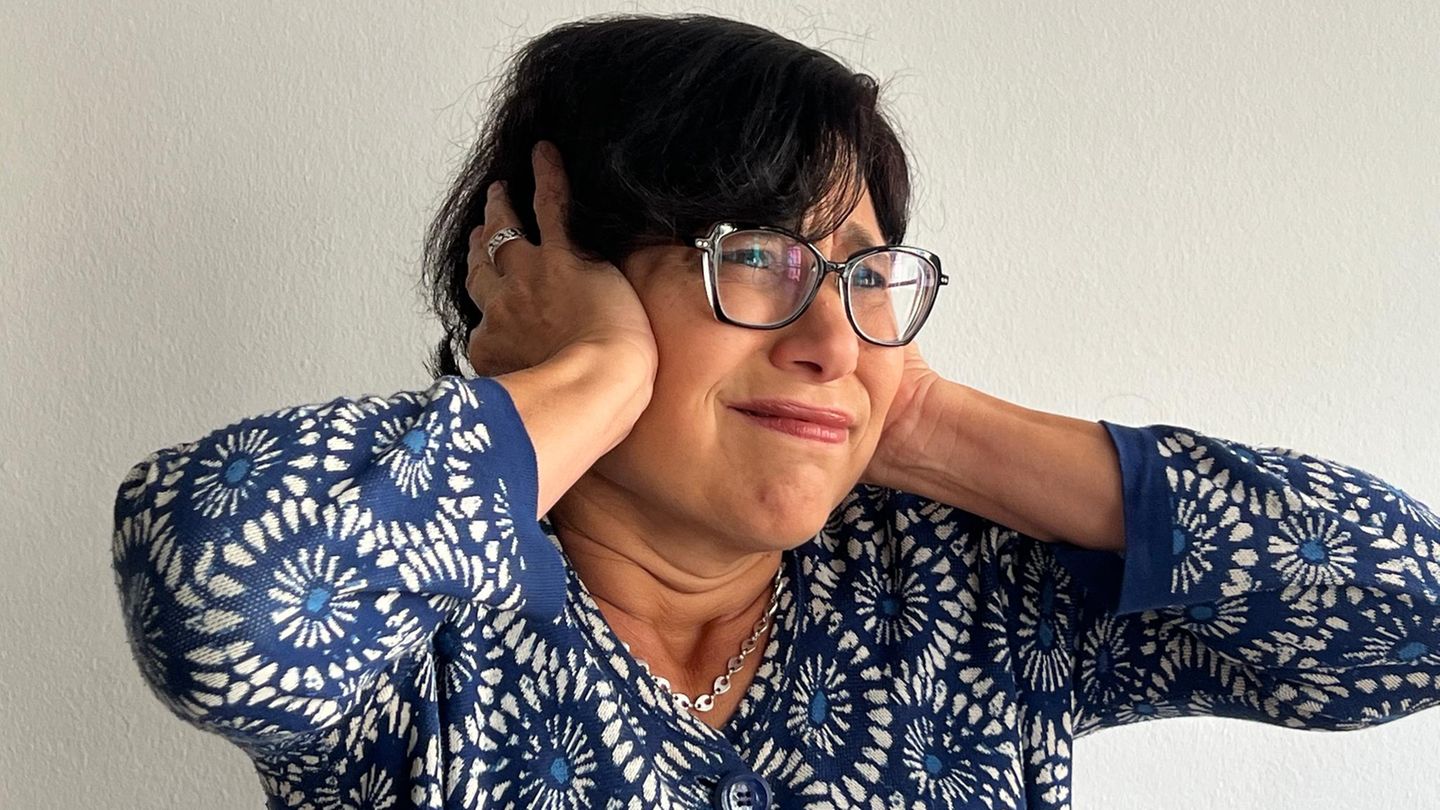Noise sensitivity
Misophonia: When smacking your lips or crackling bags of chips causes anger
Copy the current link
Our author feels bothered by everyday noises. “Misophonia” is the name of the illness, which can even have physical effects and is widespread.
I’m sitting on the train. Have to concentrate on my work. Many rows ahead, a man is playing with his pen, lost in thought. Click-click. Click-click. Somewhere behind me, two women are having a bubbly conversation about their upcoming weekend in Berlin. Every sentence loud as if I were part of their conversation. Someone rips open a bag of chips. That sounds to me like a shot was fired in the compartment. Someone is listening to a Robbie Williams song on headphones, I have no choice but to hum along inside.
I feel physically harassed by noises
Every sentence, every sound amazes me. I don’t just hear everything, I feel it. I feel physically harassed. It’s there immediately, the feeling of pressure in the upper abdomen. I breathe deeply into my diaphragm and have to hold on to myself so as not to snatch the pen out of the man’s hand and not to shut the women up. But I stay put and continue to work hard. At some point I can get out and breathe a sigh of relief.
I have situations like this every day. Someone is always chewing loudly. Taps the table with his fingernail. A device beeps, a clock ticks. As soon as a noise starts, I have to actively combat this aggression that immediately attacks me. That takes a lot of strength. And sometimes I feel strange about myself. Where does this strong feeling come from?
It’s been like this for as long as I can remember. The older I got, the more it became clear to me that other people don’t experience this in everyday life. They don’t even hear when the colleague at the desk next to them is eating an apple, and when the tram squeaks around the corner, it doesn’t feel like someone is ramming a knife into their stomach. That’s how bad a noise can actually be, I’m not exaggerating.
Misophonia is not a disease – but we still suffer
It wasn’t until my husband gave me a newspaper article one day with the words: “That’s you”I realized that I’m not the only one who’s weird. It described a woman suffering from misophonia. A weight fell from my heart: the child has a name. Miso from the Greek word misos for hate and phone for noise. Literally, then “Hatred of noises”. This reduced noise tolerance is not defined as an illness and is not classified in either the ICD-10 or the DSM-5. That calms me down a bit. But those of us affected still suffer.
Where does this selective noise sensitivity syndrome, as it is also known in neuroscience, come from? What is happening in my head?
I start researching somewhat reluctantly – I don’t really want to define myself as different, I don’t need a label. But this can be helpful for my family because it means they can understand me better when my mood suddenly changes because of a piercing noise. And maybe they like my constant “Stop it…”, “Turn down the volume immediately…”, “Sit away with your cookies…” not quite as annoying. So I look for explanations and can hardly find any.
There is a genetic predisposition to misophonia
In the past two decades, neuroscience has studied the topic more intensively for the first time. There are a handful of studies, mostly based on surveys of those affected, that define noise classes and reactions to them. The severity levels are also described. I find myself in it. Somewhere in the middle, because there are people who suffer so much from their misophonia that they avoid situations in which unpleasant noises can arise. This can lead to social isolation. It’s not that bad for me, although I prefer to go to cinemas that don’t sell popcorn, so there’s no risk of a crashing noise.
The syndrome is more common than you think. But I’ve never personally spoken to someone who could jump out of their skin when the other person was chewing gum. Maybe some sufferers don’t talk about it openly, because studies suggest that misophonia goes hand in hand with other neuropsychiatric disorders: These can be anxiety disorders, obsessive-compulsive disorders, and one study found overlaps with developmental disorders such as autism. According to a recent study, there is a genetic predisposition to misophonia.
But research still has no answer as to why this is the case. What’s actually happening in my head, why my brain doesn’t distinguish between important and unimportant, why the perception of noises is so strongly linked to mostly negative feelings, is also not completely clear.
I would like to know how other people hear the world, imagine that they only hear what they want to hear and not, like me, have to hear everything and always have a cacophony in their head. Perhaps there will soon be a hearing aid that can make exactly this difference. I’ll buy it immediately.
Source: Stern
I’m Caroline, a journalist and author for 24 Hours Worlds. I specialize in health-related news and stories, bringing real-world impact to readers across the globe. With my experience in journalism and writing in both print and online formats, I strive to provide reliable information that resonates with audiences from all walks of life.






